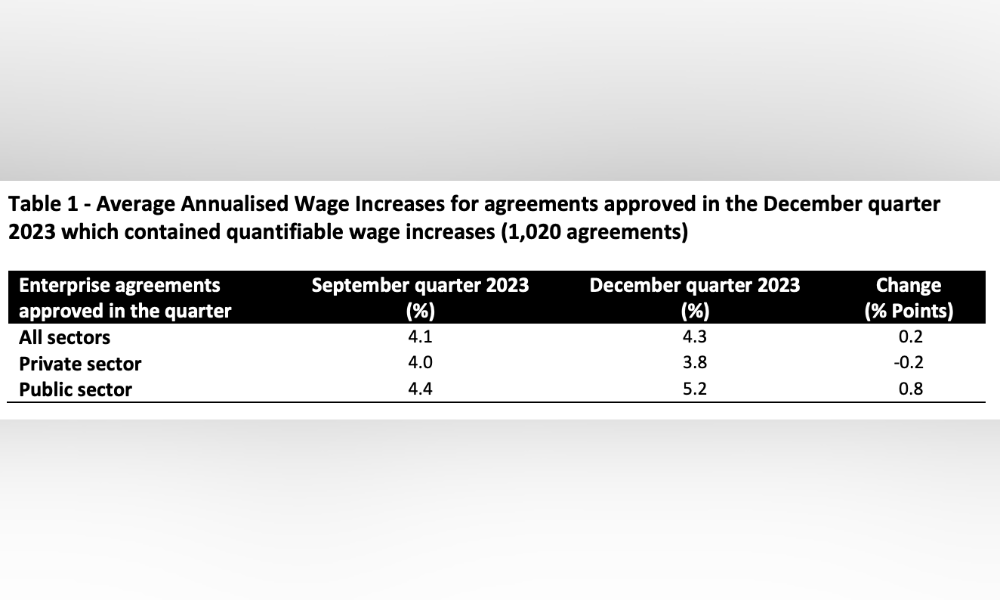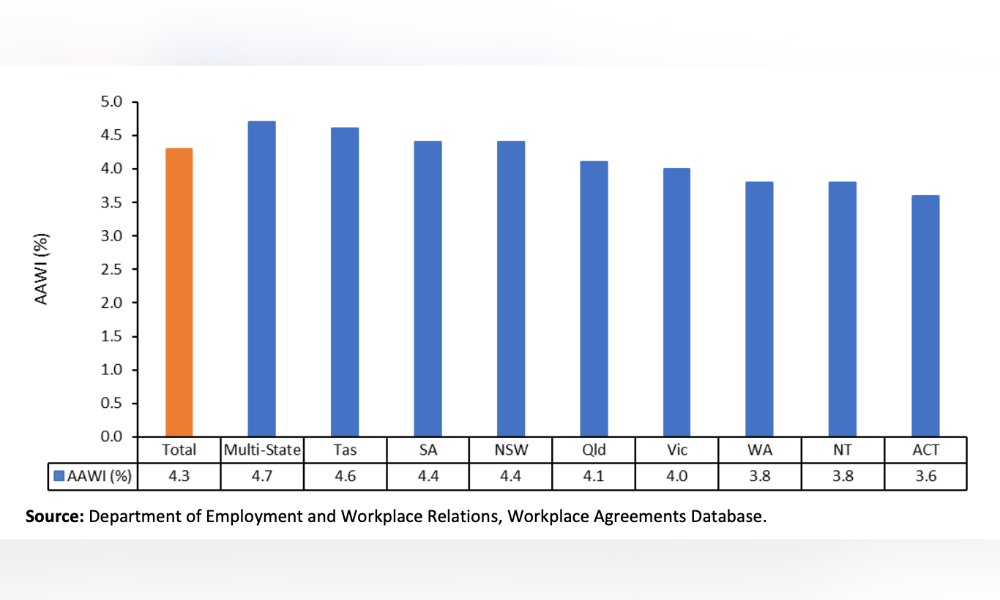
Public sector drives growth in average pay rises from new collective agreements

Average pay rises for employees covered by new collective agreements hit 4.3% in the December 2023 quarter, a 15-year high.
This is an increase of 0.2 percentage points from 4.1% in the September 2023 quarter, according to data from the Department of Employment and Workplace Relations.
The increase was driven by collective agreements in the public sector, which had an average pay rise of 5.2% in December 2023, up from 4.4% in the September quarter.
The private sector, on the other hand, saw average pay rises decline to 3.8%, down from the four per cent registered the quarter prior.

Source: Department of Employment Workplace Relations
The Australian Council of Trade Unions (ACTU) welcomed the data saying this is the highest quarterly average pay rise for workers on newly approved collective agreements since 2009.
The Albanese government's workplace reforms helped reverse Australia's collapsing collective agreements and stagnating wages, according to ACTU president Michele O'Neil.
"More workers are on collective agreements, and as a result, they're winning higher pay," O'Neil said in a statement.
There were 1,257 agreements approved in the December quarter of 2023, according to the DEWR data. This includes the 1,020 deals that contained quantifiable wage increases, which covered 136,300 employees.
By industry, sectors with the highest average pay rises per new collective agreements include:
Sectors with the lowest average pay increases include:
By location, multi-state agreements had the highest average pay rises with 4.7%. This is followed by Tasmania (4.6%) and South Australia (4.4%).
